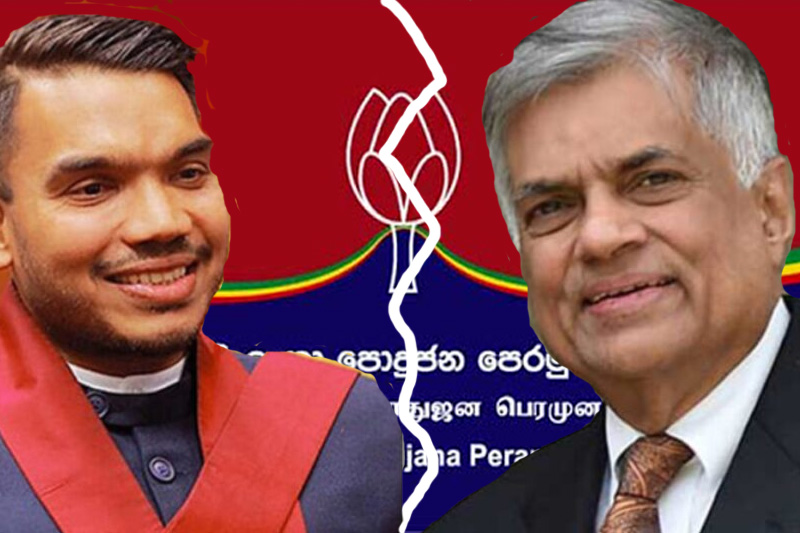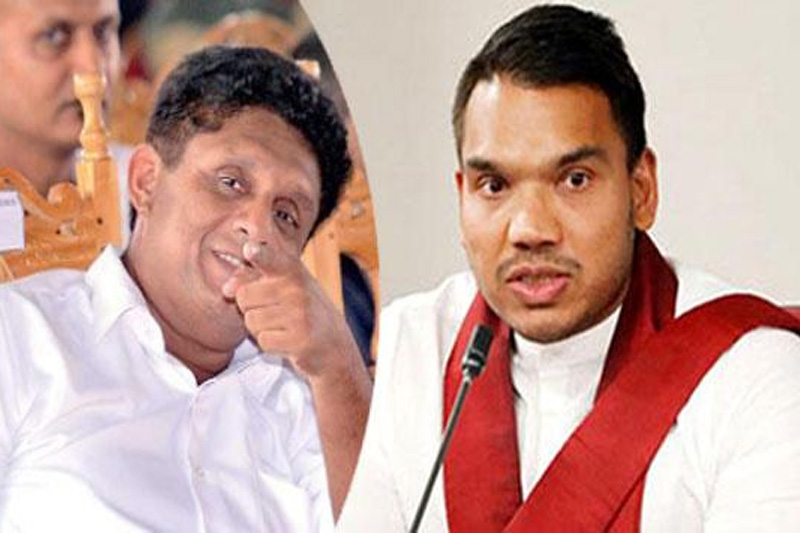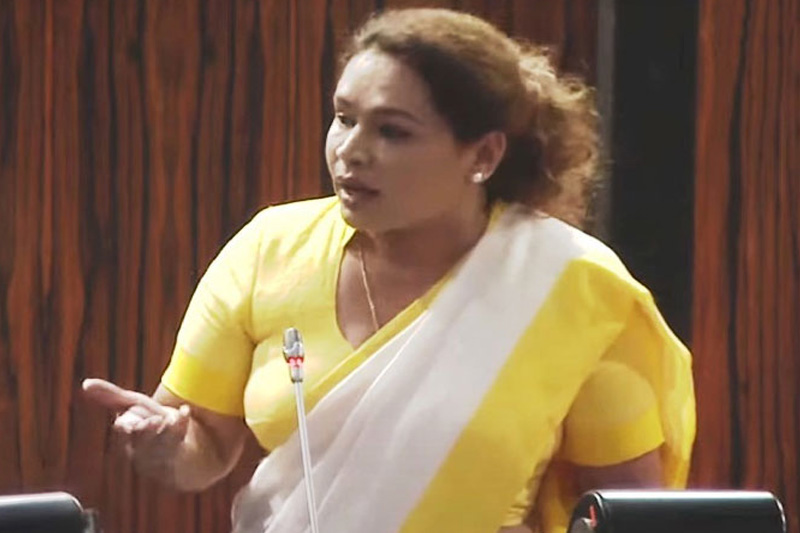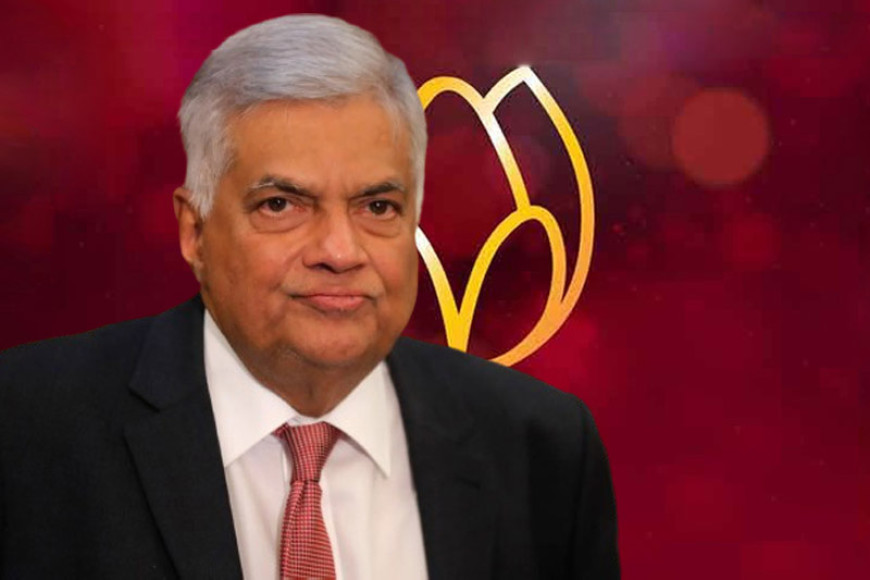SLPP's Rift with President Ranil Deepens as Impeachment Attempt Sends Shockwaves
By Rohana Jith
As the August 15 nomination day for Sri Lanka's upcoming presidential election approaches, ten deposits have already been made by prospective candidates. Notably, the Sri Lanka Podujana Peramuna (SLPP) plans to introduce Dhammika Perera, a prominent casino mogul and billionaire, as its candidate this week.
President Ranil Wickremesinghe, who has a long political career behind him, faces significant challenges in his bid for re-election. His path to the presidency is complicated by covert impeachment attempts in parliament from an opposition alliance consisting of the SLPP, the Samagi Jana Balawegaya (SJB), and other undisclosed entities.
The SLPP is currently divided over its presidential candidate for the September 21 election. One faction supports Wickremesinghe, while another is pushing for a different candidate endorsed by the SLPP. Key party members, including ministers and influential MPs, favor Wickremesinghe.

Meanwhile, UNP Chairman, MP Wajira Abeywardena claimed that more than 105 SLPP MPs have chosen to support Wickremesinghe in the upcoming Presidential Election. He also mentioned that the SLPP’s decision to nominate a separate presidential candidate could be advantageous for MPs who are prepared to support the SJB candidate.
However, the SLPP’s Political Bureau, meeting at former President Mahinda Rajapaksa’s residence, has decided to field its own candidate, diverging from supporting Wickremesinghe.
A major challenge for Wickremesinghe's supporters is the lack of a nationwide electoral infrastructure.
The United National Party (UNP), which he leads, is currently disorganized, affecting its ability to manage electoral operations such as staffing polling stations and counting votes. Reliance on SLPP personnel for these tasks is uncertain, given the SLPP’s decision to back its own candidate.
The SLPP’s decision to present its own candidate reflects a strategic long-term aim to maintain the party's identity and unity. The party has faced similar internal conflicts before, notably in 2015, but its adaptation to such political shocks will be crucial, depending on the outcome of the presidential election. A victory for Wickremesinghe could potentially resolve or exacerbate the current tensions.
Meanwhile, Opposition Leader Sajith Premadasa and Namal Rajapaksa, son of the SLPP’s lead Mahinda Rajapaksa have reportedly engaged in secret talks to impeach Wickremesinghe.
These discussions indicate a concerted effort to remove the president before the September 21 election. Wickremesinghe’s weakened position, following the SLPP's withdrawal of support, has made him vulnerable to these impeachment efforts.
An impeachment could destabilize Wickremesinghe’s campaign and create further uncertainty. In response, Wickremesinghe has attempted to weaken the SLPP by persuading 92 of its parliamentarians to distance themselves from the Rajapaksa influence. This maneuver has angered the Rajapaksa family, prompting them to explore alliances with figures like Sajith Premadasa.

Sajith Premadasa, aiming to block Wickremesinghe’s re-election, has accused the president of trying to sway support from the SJB through financial and positional offers. This conflict has heightened Sajith's resolve to see Wickremesinghe impeached.
Internationally, a powerful nation is reported to support both the Rajapaksa family and Sajith Premadasa in their efforts against Wickremesinghe. This international backing could significantly impact the political landscape and election outcomes.
The National People's Power (NPP) and its leader, Anura Kumara Dissanayake, might benefit from the current political turmoil. Recent surveys suggest Dissanayake leads the presidential race with 39% support. An upcoming visit by a significant foreign delegation to meet NPP leaders further underscores international expectations for an NPP victory.
On the other hand, Sajith Premadasa faces immediate issues with his party’s campaign. Financial reluctance from businessmen has led to the collapse of the SJB’s propaganda network. This situation was exacerbated when several national newspapers declined to publish an advertisement for Premadasa due to non-payment.
Another pressing issue involves the large number of officially recognized political parties—84 in total—listed by the Elections Department. The frequent trafficking of these parties has been a notable issue in Sri Lankan politics.
For instance, former State Minister of Tourism Diana Gamage, who was found to be a foreign citizen, had previously facilitated the transfer of a recognized party to Sajith Premadasa's control in exchange for a position. Her subsequent switch of allegiance and issues of citizenship have added to the political turbulence.

The Election Commission of Sri Lanka is now tasked with resolving the complexities arising from Gamage’s case and its implications for the SJB on the nomination date.
This political upheaval is likely to benefit the National People's Power (NPP) leader, Anura Kumara. Recent surveys indicate that Anura Kumara is leading the presidential race with 59% of the vote. The current developments could bolster his support base even further.
In anticipation of an NPP victory, a powerful foreign delegation is scheduled to visit Sri Lanka next week to meet with the NPP leadership. Their visit underscores the international community's expectation that the NPP will win the upcoming presidential election.
Due to the reluctance of businessmen to spend money on behalf of the opposition leader Sajith Premadasa, the Samagi Jana Balawegaya (SJB) propaganda campaign network has collapsed.
Several leading Businessmen, who are concerned about the potential fate of their businesses if a leader without vision or a clear plan, like Sajith Premadasa, comes to power, have reached this decision after extensive discussions on the matter.
Although space was allocated today (2) for a full-page advertisement in several national newspapers to promote Sajith Premadasa, the newspapers decided not to publish the advertisement due to the inability of the SJB to pay for it.
However there is another urgent election related matter that needs attention. This concerns the number of so-called ‘recognized’ political parties who are on the books of the Elections Department. This figure is now at a staggering 84.
Readers are very well aware of trafficking in recognized political parties that has been all too common in this country.



